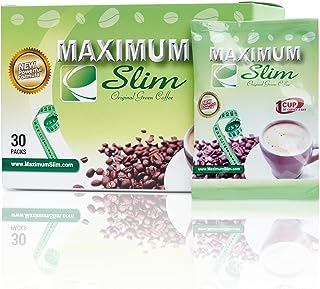Deciding whether to drink coffee before or after your morning workout can be as critical as the workout itself for your fitness goals. You wonder if that caffeine boost pre-exercise will give you the edge you need to push harder and longer, or if it’s the post-workout pick-me-up that’s ideal for recovery. Imagine sipping on your favorite brew, feeling that pleasant surge of energy, and tackling your workout with vigor. But wait, could this timing affect your sleep or leave you feeling jittery during your squats and lunges?

Ever been torn between hitting the gym on a full tank or refueling once you’re spent? You’re not alone. Drinking coffee before a workout may enhance physical performance, thanks to caffeine’s role in increasing alertness and potentially aiding fat oxidation. On the flip side, having coffee post-exercise might seem like a great way to recover, but depending on your sensitivity to caffeine, it could interfere with much-needed recovery processes, including sleep. It’s a delicate balance, finding that perfect timing for your coffee ritual in relation to your fitness routine.
Key Takeaways
- Caffeine pre-workout can increase alertness and performance.
- The timing of coffee intake affects recovery and sleep patterns.
- Balancing coffee consumption with workout goals is key.
The Impact of Coffee on Morning Workouts
When you roll out of bed with the ambition to conquer your morning workout, the decision of coffee intake can be a pivotal factor. Let’s examine how caffeine acts as more than just a wake-up call.

Understanding Caffeine and Its Role in Exercise
Ever wondered why so many athletes swear by that cup of joe before hitting the track? Caffeine is a powerful ergogenic aid, as recognized by the International Society of Sports Nutrition, enhancing not just your alertness but cranking up your focus to tackle those reps. But here’s the kicker: it’s all about timing and dosage. Too much and your hands are jittering more than your legs on leg day. Remember that time you had an espresso shot before the gym and felt like you could read minds? That’s caffeine working its magic on your focus and alertness.
Pre-Workout Coffee: Benefits for Performance and Energy
Sipping on some coffee before engaging in exercise packs a punch. Fancy feeling like a superhero? Caffeine boosts your performance and energy levels, potentially improving your strength and endurance. Think of it as your legal performance enhancer. Picture the last time you aced a workout after a coffee — the barbell practically lifted itself, didn’t it?
- Benefits:
- Enhanced performance and endurance
- Increased energy and focus
- Improved strength
However, keep in mind the wise words of the International Society of Sports Nutrition: moderation is key.
Potential Side Effects and Precautions
But hold your horses — coffee isn’t all hearts and flowers. Ever chugged a latte and felt your heart playing the drums in your chest? That’s one of the side effects to watch out for. And remember, timing is everything — opt for coffee too close to bedtime, and you’ll be staring at your ceiling counting sheep squatting instead of catching those Z’s.
- Side Effects to Consider:
- Increased heart rate
- Jitters or anxiety
- Gastrointestinal discomfort
- Sleep disturbances if consumed late
Always tune in to your body’s responses. If coffee turns you into a frenzied jackrabbit on a treadmill, you might want to cut back.
Have you experienced the power rush of caffeine pre-workout, or does it send you buzzing like a bee with no flower in sight? Share your bean brew tales below and let’s spill the (coffee) beans on this morning ritual!
When to Drink Coffee Before Your Workout
Fueling your morning workout can be as simple as timing your coffee right. Coffee, often consumed for its energizing effects, can enhance both your energy levels and workout performance. But to leverage these benefits, it’s crucial to understand the optimal timing and account for your body’s unique responses.
Timing Your Coffee Intake for Optimal Results
Do you stumble out of bed, dreaming of the gym as your first destination? If that’s the case, you might be wondering just how soon before your workout you can sip on that steamy cup of vigor. To maximize the caffeine’s performance-enhancing effects, aim to drink your pre-workout coffee about 45-60 minutes before exercising. This timeframe allows caffeine to peak in your bloodstream, potentially giving you an extra edge whether you’re lifting weights or hitting the treadmill. But have you thought about hydration? Remember, coffee is a diuretic, so balance it with water to avoid dehydration.
Individual Factors Influencing Coffee Consumption
Wondering if you can handle a morning espresso shot without becoming a jittery jackrabbit? Well, you’re wise to consider your personal caffeine sensitivity and metabolic rate. Your body weight plays a substantial role, too; smaller individuals may require less caffeine for the same energizing effect. Plus, caffeine lingers longer in some people’s systems. If you find yourself sensitive, try a smaller dose to prevent any post-gym cramps or the dreaded midday crash. And hey, it’s not just about the coffee—think about any pre-workout supplements you take. How do they mix with your java? Could be a secret recipe for success or an uneasy stomach. Pay attention to your body’s signals and adjust accordingly.
Choosing the Right Coffee for Your Fitness Goals
When preparing for a morning workout, selecting the optimal coffee can be as crucial as the exercise itself. This section unveils how different types of coffee and their ingredients can either fuel your fitness journey or hinder your progress.
Types of Coffee and Their Effects on Exercise
Ever wondered if that shot of espresso packs enough punch to power your morning run? Think about it: a single espresso contains concentrated doses of caffeine, known to increase calorie burn and improve performance. But remember, a large, frothy latte from your favorite café might be less effective, given the added milk and sugar which increase calories and may cause an unwanted spike in blood sugar levels.
Have you ever tried a simple French press coffee before lifting weights? The robust flavor and customizable caffeine content could be just what you need to focus and push through those last few reps. Unlike specialty coffees laden with syrups and toppings, a plain French press coffee provides a clean caffeine boost without extra calories or carbs.
Let’s not forget black coffee, the purist’s choice. Have you felt the difference on those days when you sipped a mug of pure black coffee before your spin class? With virtually no calories, it provides the caffeine your body may need without clouding your fitness goals.
Additional Ingredients to Consider or Avoid
Imagine adding just a touch of milk to your coffee and suddenly, you’ve added essential nutrients like protein. But have you ever gone overboard and found your light caffeine kick turned into a creamy dessert? It’s a common trap. Ideally, look to add minimal milk or perhaps a non-dairy alternative to keep the calorie count in check.
Then, consider this: can a sprinkle of sugar truly sabotage your efforts? While it might make your coffee taste better, excess sugar can offset the benefits of your workout by providing short-lived energy that crashes rapidly. Instead, how about swapping it with a slice of banana? You might be surprised how the natural sweetness and extra carbs can fuel you more effectively.
And here’s where things get interesting – protein coffee. Have you heard of it? It’s become quite the rage among fitness enthusiasts. By adding a scoop of protein powder to your coffee, you’re turning your beverage into a powerful, muscle-building tool. But be mindful, the key is to find a balance that complements, not counteracts, your calorie burn goals.
As you gear up for your next workout, remember that your choice of coffee could be as pivotal to your fitness routine as the exercises themselves. Will you go for a minimalist black coffee, an energizing espresso, or perhaps a nutrient-boosted protein coffee? Why not experiment a little and see what works best for you? After all, every fitness journey is unique, and so is the perfect brew that accompanies it.
Post-Workout Considerations and Coffee
After pushing your limits during a morning workout, how you support your body’s recovery is just as crucial as the exercise itself. Utilizing coffee strategically can be a game-changer in this process, from refueling muscles to managing soreness. Let’s explore how this popular beverage interacts with post-exercise recovery and hydration.
Recovery and the Role of Coffee After Exercise
Have you ever considered reaching for a cup of joe after a tough gym session? Quite possibly, given its wake-up prowess. But beyond its energizing effects, coffee might just be your muscles’ new best friend. Research suggests coffee can significantly aid muscle recovery by assisting with the replenishment of glycogen, the primary energy reserve depleted during strenuous activity. Doesn’t the thought of a warm cup potentially reducing that dreaded muscle soreness sound enticing?
Notably, one study highlighted in professional discussions has shown that caffeine can help sustain muscle glycogen at higher levels post-workout. So imagine this: sipping on your favorite brew and giving your muscles a glycogen kickstart – quite a multitasking move, right?
Hydration and Rehydration: Coffee’s Influence
Now, let’s tackle a sweaty subject – hydration. You lose a lot of fluid during exercise, and rehydrating is key to recovery, but does coffee help or hinder this process? Common sense may have you thinking that coffee, a diuretic, could contribute to dehydration. But the science indicates that regular coffee drinkers might not experience significant fluid loss. On the contrary, coffee can contribute to your daily fluid intake. So while it shouldn’t replace water, you needn’t fret about that post-workout cup as long as you continue to drink water throughout the day.
Ever wondered if you could count that coffee as part of your rehydration strategy? For most regular coffee drinkers, you likely can. Just remember not to overdo it – moderation is key to balancing the scales between coffee’s diuretic properties and your hydration needs.
Considering all angles, it’s apparent that when enjoyed responsibly, coffee can be a valuable addition to your post-workout regimen, contributing to recovery and hydration. What’s your take on having a post-exercise roast? Have any personal anecdotes to share about how coffee influenced your muscle recovery or hydration strategies?





